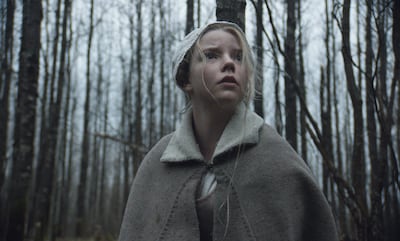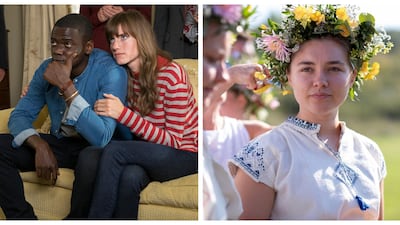As any dedicated horror fan knows, there are many different subsections that make up one of the most popular cinematic genres in the world. Be it paranormal, slasher, zombie, gore or comedy, horror has pretty much embraced every aspect of moviemaking to add a dark or terrifying twist to the handful of traditional plot lines.
In recent years, the term “elevated horror” has come to the forefront, creating a new category often referred to as “horror for non-horror fans.” But is this new classification a way to divide the horror community, or attract new fans to create a wider audience?
What is elevated horror?
Most genres of horror are pretty self-explanatory. Comedy horror encompasses films such as Shaun of the Dead, Zombieland and Jennifer’s Body. Even relatively tame films such as Ghostbusters and The Addams Family fall into this category, albeit at the gentler end of the spectrum.
The slasher category features A Nightmare on Elm Street and Halloween; gore has the Hostel and Saw series; psychological horror boasts The Shining and The Others, and The Blair Witch Project fits terrifyingly well into the paranormal mould.
Elevated horror meanwhile, is used to refer to films that explore themes beyond the blood.
Family drama, mental illness, and social commentary or injustice, when incorporated into a film in a meaningful way, are the devices that take a film from simply horror to elevated horror.
What films are considered elevated horror?

The term itself is relatively new. Applied by critics to Robert Eggers’s 2015 scare-fest The Witch, it was used to set apart the new crop of horror films it influenced from the traditional movies with their obvious villains and jump scares.
Jordan Peele’s Oscar-winning 2017 film Get Out, and his follow-up, 2019’s Us, are considered perfect examples of elevated horror, tackling themes beyond the purely macabre, such as systemic racism and trauma.
“Time and time again you realise that the more truth you’re hitting on that people haven’t seen put in this way, the more successful it is,” writer-director Peele told Variety, of messaging through the medium of horror.
Hereditary, starring Toni Collette, with its focus on familial trauma and motherhood, as well as grief and loss, found itself a natural heir to the 1968 Oscar-winner Rosemary’s Baby.
Midsommar, starring Florence Pugh, remains critically acclaimed thanks to its portrayal of an emotionally abusive and manipulative relationship between the protagonist Dani (Pugh) and her boyfriend Christian (Jack Reynor). Hereditary and Midsommar were written and directed by Ari Aster, who, along with Peele and Eggers, have mastered the genre.
Snobby or smart business: why some fans don’t like the term
Having found its niche at the intersection where horror meets satire, 2022's Scream, the fifth in the series, used its famous opening scene to skewer the elevated horror genre.
In her phone conversation with Ghostface, when Jenna Ortega’s character Tara Carpenter is asked the perennial question: what’s your favourite scary movie? She replies: “The Babadook. It’s an amazing meditation on motherhood and grief.
“It’s elevated horror … Scary but with complex emotional and thematic underpinnings. It’s not just some schlocky, cheese ball nonsense with wall-to-wall jump scares.”
Dismissed as simply a modern term for the psychological horror genre which has been around for as long as cinema, the rebranding has been credited with drawing in audiences who might otherwise not care for these films in the traditional sense.
In doing so, the term has become somewhat divisive in the horror fan world.
“Elevated, of course, refers to something being above others, and this is exactly how it’s used — to separate those who prefer a ‘more sophisticated’ film over a typical slasher or creature feature,” said Lor Gislason of horrorobsessive.com. “Some filmmakers still find the genre of horror to be almost a dirty word; it is as though they are trying to escape it and use something else rather than embrace it.”

